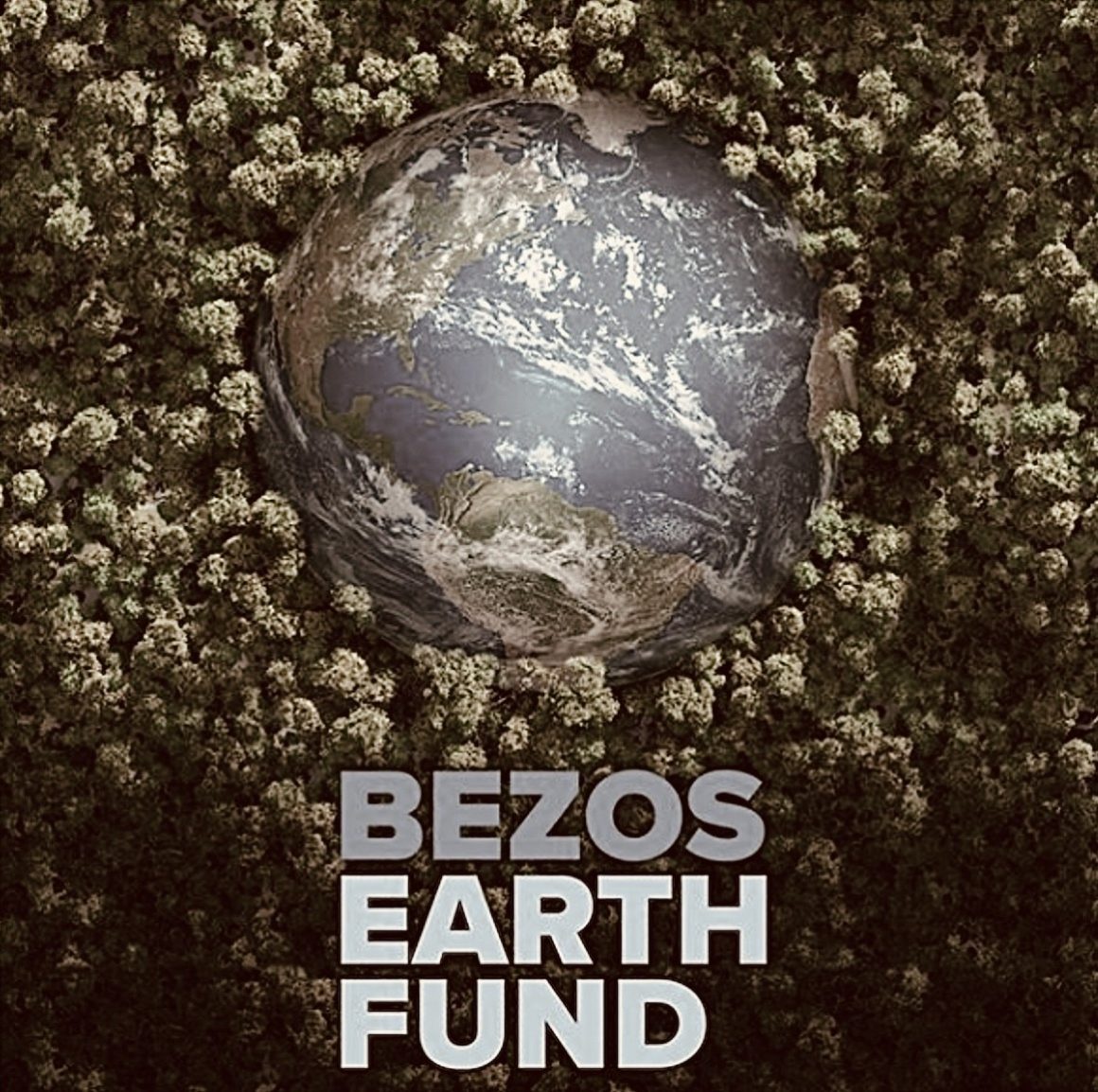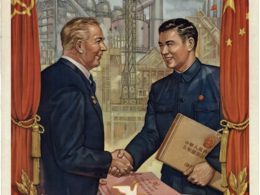The project by Jeff Bezos and other oligarchs to weaponize the concept of anti-colonialism towards reinforcing capitalism goes deeper than their “decolonial” NGOs. This is because whereas these NGOs are relatively easy for developing radicals to recognize as anti-revolutionary, there are other, more insidious ways that imperialism-compatible “anti-colonial” politics is getting normalized. The effort by Bezos to set up his “Earth Fund” so that he can fund bourgeois iterations of “land back” like NDN Collective is supported not just by institutional power, but by narrative power. By a series of ideas within radical spaces which convince actors who otherwise would oppose bourgeois “decolonization” to tacitly support it, based on the idea that this is a necessary step towards bringing decolonization’s socialist version.
The way to fight Bezos is by recognizing that he’s not even co-opting the USA’s “anti-colonial” movement, as this movement in its modern mainstream iteration was a tool of capitalism in the first place. The examples of genuinely revolutionary anti-colonialism in the core are scarcer than radical liberals want us to believe. At this stage, revolutionary anti-colonialists only exist among either activists who are too ideologically underdeveloped to be tied to the Democratic Party (and these types often get assimilated into reformism), or ones who are so exceptionally developed as to be able to consciously reject the Democratic Party’s influence. Otherwise, the DNC is the thing they’re helping, not a true project to overthrow the colonial/capitalist state. This widespread cowardice and complicity in the country’s left is why even though the U.S. empire is collapsing worldwide, it’s still far too stable in the core. Those who are supposed to represent the country’s liberation struggles lack revolutionary intentions, and even when they say they’re revolutionary, they often advance radical liberalism instead of serious Marxism.
To expand the influence and numbers of the serious Marxists, we have to expose an extremely important reality about the nature of today’s conditions in the USA: that even though the U.S. continues to be a settler-colonial state, the economic structure it’s based upon makes it able to continue acting as an imperialist force, even if settler-colonialism were ended. That is, as long as the decolonization project were to take on a bourgeois class character, rather than a proletarian one. Even if the U.S. and Canada were completely decolonized, they would still be able to extract from the imperial peripheries unless socialism came along with the decolonization process. We would simply have a modified version of imperialism and class society, where a Native bourgeoisie has been able to attain fully equal status to the white bourgeoisie while working class people within and without the continent are still exploited.
This is what Bezos, NDN, and Canada’s own efforts at raising up an indigenous bourgeoisie are already making a reality. They’re selling land privatization via a scam where they call this “giving the land back,” when in reality they’re only giving it back to an opportunistic minority of Natives while the conditions of the Native proletarians remain unchanged. And of course while the conditions of the workers in the neo-colonies, or the victims of imperialism’s wars, aren’t improved in any way either. The imperialists are also carrying out a parallel “decolonial” scam within the Global South, where as the planet warms, they’re increasingly using the need to protect indigenous lands as a pretext for U.S. military involvement. It’s the same scam that the liberals have carried out when they’ve sold “green” imperialism, or “feminist” imperialism, or “rainbow” imperialism.
The radicals who promote “decolonial theory” which lacks a proletarian class character are assisting this project for a “decolonized” imperialism, whether they intend to or not. How to recognize such types of anti-Marxist theory, even though its propagators try to present it as “Marxist?” By seeing whether it represents such a serious break from Marxism as it’s been established by previous theoreticians, you can’t honestly argue that it’s reconcilable with Marxism. This is what one can recognize about Gerald Horne’s argument that the American revolution of 1776 was a reactionary event, as described by this part from the deconstruction of that argument by Midwestern Marx. The essay observes how Horne, and by extension all those who share his ideas, have discarded the notion of historical materialism shared by all of history’s biggest figures within Marxism:
Horne briefly acknowledges this, but tries to glibly explain it away, by saying that Lenin, Ho Chi Minh and other revolutionaries were merely being motivated ‘more by diplomatic niceties and protocol than anything else’. The notion that leaders of revolutionary projects which were literally at war with US imperialism would be primarily motivated by diplomatic niceties is, again, something that is very difficult to believe. What’s also rather stunning about Horne’s treatment of the American Revolution is the lack of engagement with previous Marxist scholarship on the subject, odd for someone who claims to come from that tradition. In ‘The Counter Revolution of 1776’, there is not even a passing acknowledgement of the foundational work of WEB Dubois, Herbert Aptheker [especially his classic work ‘Negro Slave Rebellions’], Eugene Genovese and so many others who had written on the American Revolution and slavery while applying a Marxist class analysis. The notion that all these sharp scholars, famed for training their laser eyes on aspects of history buried or obscured by the ruling class, would have failed to uncover a historical fact as enormous as the American colonial rebellion of 1776 being motivated by slavery, strains credulity to a breaking point.
What’s the effect of this repudiation of Marxism in the name of “anti-colonialism?” It’s to fortify imperialism’s organizational and discourse control over our popular movements. The same is true about “degrowth” in relation to the environmental movement: it’s a “green” theory that’s compatible with capitalism and unable to be incorporated into Marxism. As long as those who claim to be Marxists are informed by the “anti-colonial theory” that liberal academics have constructed (which is absolutely what informed Horne’s 1776 analysis), rather than actual Marxism, they’ll remain unable to win. This is because as Parenti implied in his critique of these theories, they cultivate a mentality which makes one unable to gain the support of the broad population:
Many who pretend to be on the Left are so rabidly anti-Marxist as to seize upon any conceivable notion except class power to explain what is happening in the world. They are the Anything-But-Class (ABC) theorists who, while not allied with conservatives on most political issues, do their part in stunting class consciousness. The “left” ABC theorists say we are giving too much attention to class. Who exactly is doing that? Surveying the mainstream academic publications, radical journals, and socialist scholars conferences, one is hard put to find much class analysis of any kind. Far from giving too much attention to class power, most U.S. writers and commentators have yet to discover the subject. While pummeling a rather minuscule Marxist Left, the ABC theorists would have us think they are doing courageous battle against hordes of Marxists who dominate intellectual discourse in this country—yet another hallucination they hold in common with conservatives.
Class is the most relevant thing to the lives of the majority of the U.S. population. It’s the reason why almost two-thirds are now living paycheck to paycheck. To reject focusing on the class contradiction in one’s rhetoric, to talk more about what divides the workers than what unites them, is to limit one’s potential receptive audience to a niche online community. If all Marxists acted like this, the state would have no chance of being defeated. Which ironically would mean decolonization, true decolonization where the workers within the U.S. empire’s internal colonies gain power, wouldn’t ever be liberated. To win, we need to reach a synthesis between anti-colonialism and the labor struggle. Because anti-colonialism is something that’s compatible with Marxism, existing and historic socialist countries have had projects for rectifying the colonial contradiction. Our problem in the core is that when you hear about “anti-colonialism,” the default scenario is that it’s a bourgeois scam. The only way to correct this situation is by not entertaining the anti-Marxist “critical theories” which narratively support the scam, and building a working class movement that’s capable of winning the people.
————————————————————————
If you appreciate my work, I hope you become a one-time or regular donor to my Patreon account. Like most of us, I’m feeling the economic pinch during late-stage capitalism, and I need money to keep fighting for a new system that works for all of us. Go to my Patreon here.








